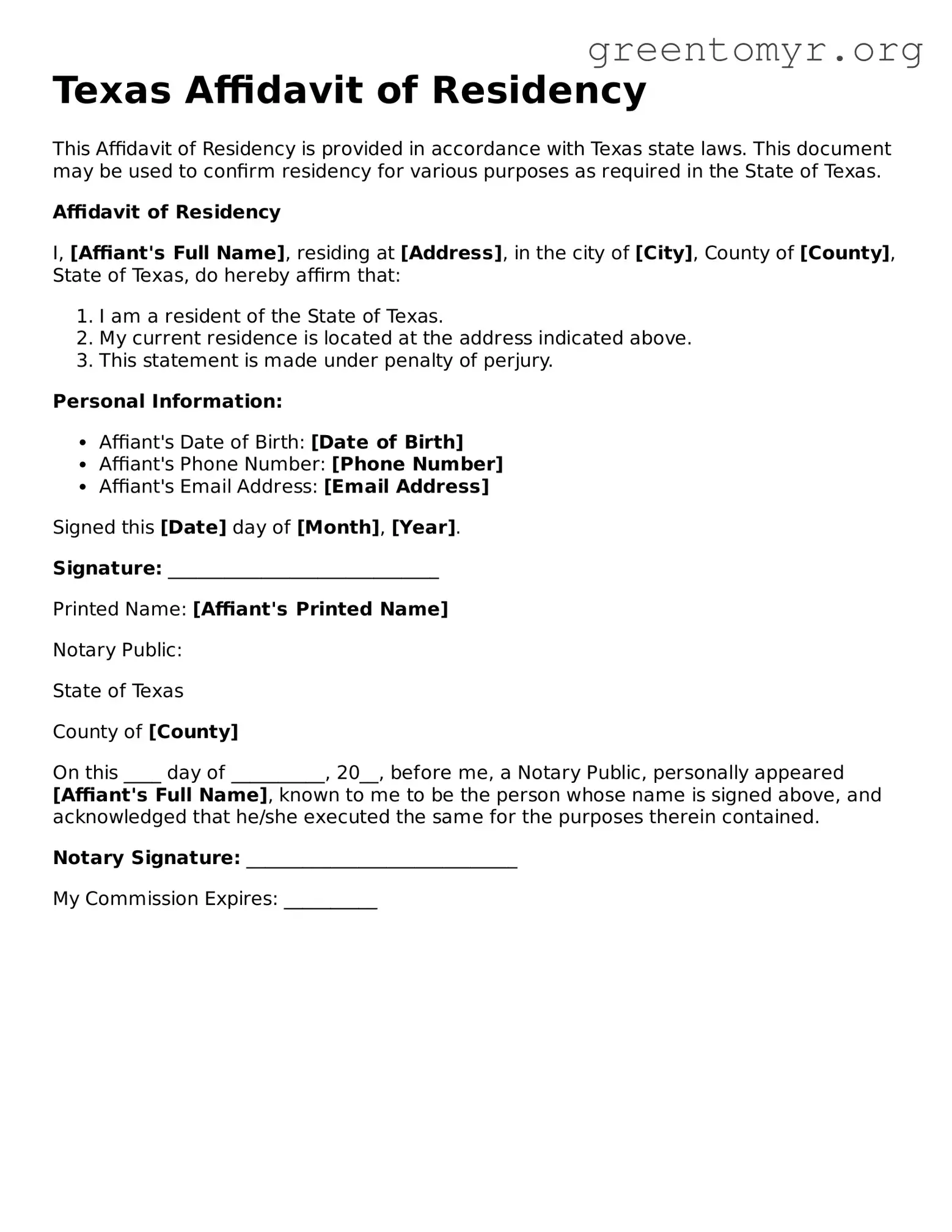The Texas Affidavit of Residency form is a legal document used to declare a person's residency within the state of Texas. This form can be particularly important for individuals who need to establish their residency for purposes such as voting, obtaining a driver's license, or qualifying for in-state tuition rates at public colleges and universities.
Individuals who are seeking to prove their residency for various reasons may need to complete the Texas Affidavit of Residency. This includes:
-
Students applying for in-state tuition
-
New residents who need to register to vote
-
Individuals applying for a Texas driver's license or ID
Essentially, if you need to establish your residency and prove your presence in Texas, this form may be required.
Filling out the Texas Affidavit of Residency form requires providing personal information, including your name, address, and date of birth. You will also need to indicate how long you have lived at your current address. It's crucial to answer all questions accurately and completely. Once you finish filling out the form, be sure to sign and date it in front of a notary public to validate your affidavit.
The Texas Affidavit of Residency form can typically be obtained from various sources, including:
-
Your local county tax office
-
Texas Department of Public Safety (DPS) offices
-
Educational institutions offering in-state tuition
You may also find the form available for download on official state websites.
Generally, submitting the Texas Affidavit of Residency form itself does not require a fee. However, any associated costs, such as notary services or obtaining additional documentation, may apply. It’s a good idea to check with the specific agency or institution where you’re submitting the form to determine if there are any fees.
Providing false information on the Texas Affidavit of Residency can have serious consequences. It's considered perjury, which is a criminal offense. This could lead to legal repercussions including fines and potential criminal charges. Therefore, it’s critical to ensure that all information included in the form is truthful and accurate.
Do I need to renew the affidavit?
Generally, the Texas Affidavit of Residency does not need renewal. Once submitted, it should remain valid unless your residency status changes. However, if you are applying for particular benefits or services that require periodic confirmation of residency, you may need to submit a new affidavit at that time.
The completed Texas Affidavit of Residency form should be submitted to the relevant authority depending on the purpose for which you are using it. For example, if you're using it for in-state tuition, submit it to your educational institution's admissions office. If you're registering to vote, submit it to your local election office. Make sure to check the specific requirements for the entity you're dealing with.
